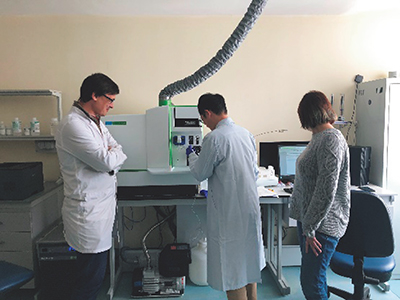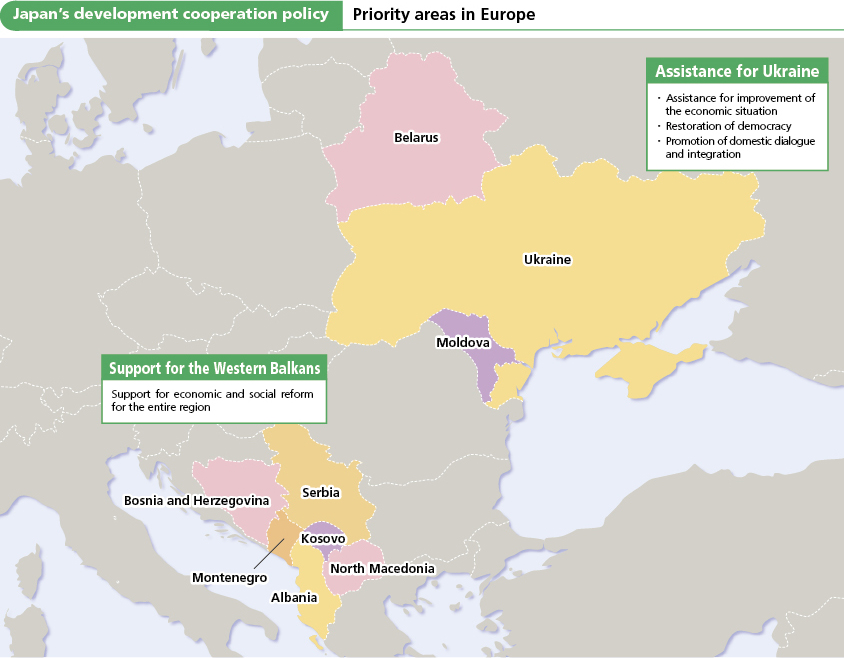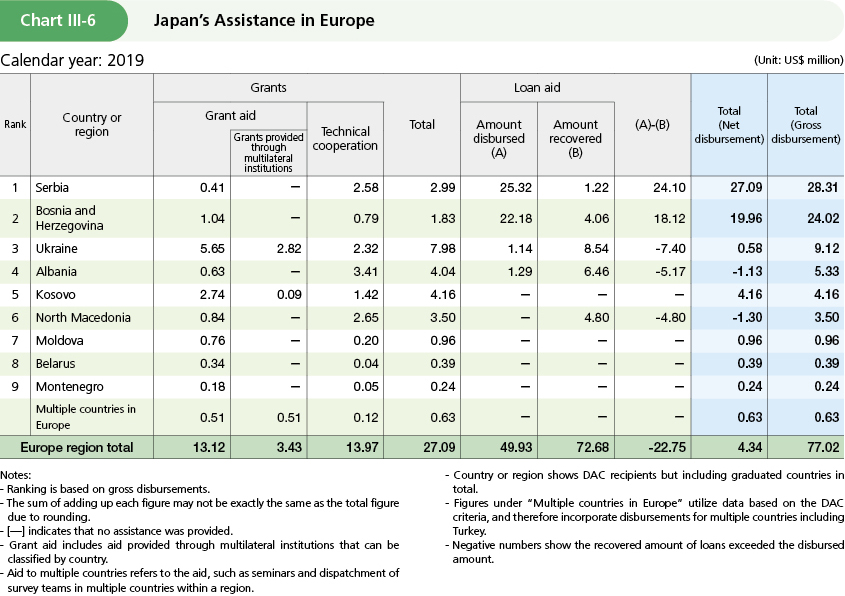5. Europe
Many countries in Central and Eastern Europe and of the former Soviet Union that were once under communist regimes are currently pursuing economic development based on market economies. Japan provides assistance for efforts such as the reconstruction of economic infrastructure and addressing environmental issues, with the aim to further strengthen relations with these countries which share fundamental values such as human rights, democracy, market economy, and the rule of law, as well as to contribute to the further stability and development of Europe as a whole.
●Japan’s Efforts

Researchers using laboratory equipment provided by Japan at the Ukrainian Research Institute for Agricultural Radiology
The reform of the Western Balkan countries Note 8 once slowed due to the outbreak of conflicts in the 1990s. However, as a result of reconstruction assistance from various countries and international organizations, as well as reform efforts by the countries themselves, they have graduated from the reconstruction assistance phase and are currently in need of assistance for sustainable economic development.
Japan, in support of a unified Europe, provides development cooperation based on the three main pillars of “consolidation of peace,” “economic development,” and “regional cooperation” as its priority areas, which were confirmed at the joint Ministerial Conference on Peace Consolidation and Economic Development of the Western Balkans, held by Japan and the EU in 2004. In 2018, then Prime Minister Abe announced the “Western Balkans Cooperation Initiative” aimed at encouraging socio-economic reforms of the Western Balkan countries toward EU accession and promoting reconciliation and cooperation amongst the ethnic groups. Japan provides assistance for the “promotion of sustainable economic growth” as its prioritized policy in the Western Balkan countries.
Ukraine and Moldova, part of the former Soviet Union, are geopolitically important since they are located between Russia and the EU, and hence the stability and sustainable development of these countries are indispensable for the stability of Europe as a whole.
In order to encourage independent and sustainable economic growth in Ukraine, Japan has been providing support in a wide range of areas such as health and medical care, finance, and basic economic infrastructure. As for Eastern Ukraine, where the situation still continues to worsen, Japan steadily provides assistance for displaced persons such as improving water supply and sanitation, providing shelters, and repairing housing. In addition to financing, Japan is also providing assistance for fiscal reforms, public service improvement, the media, and most recently capacity development for waste management, through technical cooperation.
In regard to Moldova, Japan provides assistance that contributes to the sustainable economic development of the country and the improvement in living standards for its people.
In 2020, in assistance for the region as a response to COVID-19, Japan signed and exchanged notes with Kosovo, Montenegro, North Macedonia, and Serbia concerning a total of ¥400 million in grant aid for the provision of health and medical equipment based on the requests from each country.
Furthermore, in light of disparities in economic development in Europe, Japan will gradually reduce assistance for EU member countries, regarding them as ODA graduate countries, and will encourage those countries to be donors in order to provide development cooperation more actively for developing countries in Europe.


- Note 8: The six countries including Albania, Bosnia and Herzegovina, Kosovo, Montenegro, North Macedonia, and Serbia.
